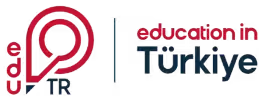Do Foreign Students Need to Know Turkish Language to Study in Turkey?

Turkey has emerged as one of the most popular study destinations for international students, combining rich cultural heritage, modern educational facilities, and affordable tuition fees. With over 200 universities and a growing number of English-taught programs, Turkey attracts thousands of students from around the world each year. However, one of the most frequently asked questions by prospective international students is whether they need to learn Turkish before studying in Turkey.
The short answer is: it depends on your program, university, and personal goals. While Turkish language skills aren’t always mandatory, understanding the language, but it can significantly impact your academic success and overall experience in Turkey.
English-Taught Programs: Your Gateway to Turkish Education
Many Turkish universities now offer undergraduate and graduate programs entirely in English, particularly in fields like engineering, business, medicine, and international relations. These English-taught programs in Turkey are specifically designed to attract international students and eliminate language barriers that might prevent talented individuals from pursuing their education in Turkey.
Top universities such as Boğaziçi University, Middle East Technical University (METU), Sabancı University, Bahçeşehir University, Medipol University, and Koç University offer numerous programs in English. These institutions and many others, maintain high academic standards while ensuring that international students can fully participate in classes, research projects, and campus life without needing advanced Turkish language skills. The Council of Higher Education (YÖK) has been actively promoting English-medium instruction to enhance Turkey’s position as a global education hub.
However, it’s worth noting that even in English-taught programs, some courses or practical components might be conducted in Turkish, especially in fields like medicine, law, or education where interaction with local communities is essential. Students should carefully review program curricula and speak with admissions offices to understand the exact language requirements for their chosen field of study.
Turkish Language Requirements by Program Type
Undergraduate Programs
For undergraduate studies, the language requirement varies significantly depending on the university and program type. Public universities typically offer programs in Turkish, requiring international students to demonstrate Turkish proficiency through standardized tests like TÖMER (Turkish Teaching and Research Center) exams or similar certifications.
Students who don’t meet the Turkish language requirements can enroll in preparatory Turkish language courses, usually lasting one academic year. These intensive programs, offered by most universities, provide comprehensive language training covering reading, writing, speaking, and listening skills necessary for academic success.
Private universities often provide more flexibility, offering both Turkish and English-taught undergraduate programs. Some institutions even offer bilingual programs where students can gradually transition from English to Turkish or take courses in both languages depending on their comfort level and career goals.
Graduate Programs
Graduate-level education in Turkey offers more options for international students seeking English-taught programs. Many master’s and doctoral programs in technical fields, business, and social sciences are conducted entirely in English. This trend reflects Turkey’s commitment to internationalization of higher education and attracts high-quality international researchers and students.
Research-intensive programs particularly benefit from English instruction, as it allows students to access global academic resources, collaborate with international researchers, and publish in international journals. However, students pursuing degrees in fields like Turkish literature, history, or law will likely need strong Turkish language skills to engage with primary sources and local legal frameworks.
Benefits of Learning Turkish
While not always required, learning Turkish offers numerous advantages for international students studying in Turkey. First and foremost, Turkish language skills dramatically improve daily life experiences. Simple tasks like shopping, banking, navigating public transportation, or seeking medical care become much easier when you can communicate in the local language.
From an academic perspective, Turkish language proficiency opens doors to additional research opportunities, local internships, and networking possibilities. Students who speak Turkish can access a broader range of resources, including Turkish academic publications, historical documents, and local expert interviews that might not be available in English.
Career opportunities also expand significantly for students with Turkish language skills. Turkey’s growing economy and strategic location between Europe and Asia create numerous job prospects for multilingual graduates. Companies operating in Turkey or with Turkish business connections highly value employees who can navigate both Turkish and international business cultures. The Turkish job market particularly rewards individuals who can serve as cultural and linguistic bridges between Turkey and other countries.
Furthermore, learning Turkish enhances cultural integration and personal growth. Students who speak Turkish can form deeper friendships with local students, participate more fully in cultural events, and gain insights into Turkish society that might remain hidden to those who rely solely on English.
Language Learning Resources and Support
Turkish universities and the Turkish government provide extensive support for international students learning Turkish. Most universities offer Turkish language courses through their language centers, often at subsidized rates for enrolled students. These courses range from beginner to advanced levels and typically include both general Turkish and academic Turkish components.
The Yunus Emre Institute, Turkey’s official cultural and language promotion organization, operates worldwide and offers Turkish language courses, cultural programs, and certification exams. Their standardized Turkish Proficiency Exam (TPE) is widely recognized by Turkish universities and employers.
Online resources have also revolutionized Turkish language learning. Platforms like Duolingo, Babbel, and specialized Turkish learning websites provide flexible, self-paced learning opportunities. Many students begin studying Turkish before arriving in Turkey, giving them a foundation that makes the transition smoother.
Language exchange programs, where Turkish students learning English partner with international students learning Turkish, create mutually beneficial learning opportunities while fostering cross-cultural friendships. Most universities facilitate these programs, and they’re an excellent way to practice conversational Turkish in a relaxed, supportive environment.
Practical Tips for International Students
For students planning to study in Turkey, here are some practical language-related recommendations:
Before Arrival: Start learning basic Turkish phrases and everyday vocabulary. Even elementary Turkish skills will help with initial tasks like airport navigation, accommodation setup, and basic shopping. Consider taking online courses or using language learning apps to build foundational skills.
Upon Arrival: Enroll in Turkish language courses offered by your university, even if your program is taught in English. These courses are usually affordable and specifically designed for international students. They also provide opportunities to meet other international students facing similar challenges.
Daily Practice: Immerse yourself in Turkish media, including news websites, TV shows, and social media. Turkish entertainment industry produces engaging content that can make language learning enjoyable while providing cultural context.
Social Integration: Join student clubs, sports teams, or volunteer organizations where you’ll interact with Turkish students. These informal settings provide excellent opportunities for natural language practice and cultural exchange.
Professional Development: Consider how Turkish language skills align with your career goals. Students planning to work in Turkey or with Turkish companies should prioritize language learning, while those planning to return home might focus on maintaining basic conversational abilities.
Regional Considerations
Turkey’s linguistic landscape extends beyond Turkish, particularly in certain regions. Students studying in southeastern Turkey might encounter Kurdish, while those in coastal areas might find Arabic or other languages common among local communities. However, Turkish remains the primary academic and official language throughout the country.
Istanbul and Ankara, being major cosmopolitan cities, offer more English-speaking environments and international communities. Students in these cities might find it easier to navigate daily life without Turkish initially, but learning the language remains beneficial for full integration and cultural understanding.
Key Takeaways
The question of whether you need Turkish to study in Turkey doesn’t have a simple yes or no answer. Your language needs depend on multiple factors including your chosen program, university, career goals, and personal preferences for cultural integration.
• English-taught programs are available: Many Turkish universities offer high-quality programs in English, particularly at the graduate level and in technical fields.
• Turkish language requirements vary: Always check specific program requirements with your chosen university, as language needs differ significantly between programs and institutions.
• Learning Turkish enhances your experience: Even if not required, Turkish language skills improve daily life, academic opportunities, and career prospects in Turkey.
• Support resources are abundant: Turkish universities, government institutions, and online platforms provide extensive language learning support for international students.
• Start early: Beginning Turkish language study before arrival in Turkey makes the transition smoother and more enjoyable.
• Consider long-term goals: Align your language learning efforts with your career aspirations and whether you plan to remain in Turkey after graduation.
• Embrace the opportunity: Learning Turkish provides access to a rich culture, expanded professional networks, and personal growth opportunities that extend far beyond academic requirements.
Turkey’s education system welcomes international students regardless of their initial Turkish language proficiency. With proper planning, realistic expectations, and commitment to language learning when necessary, students can successfully navigate Turkish higher education and emerge with both academic credentials and valuable cross-cultural competencies that serve them throughout their careers.




